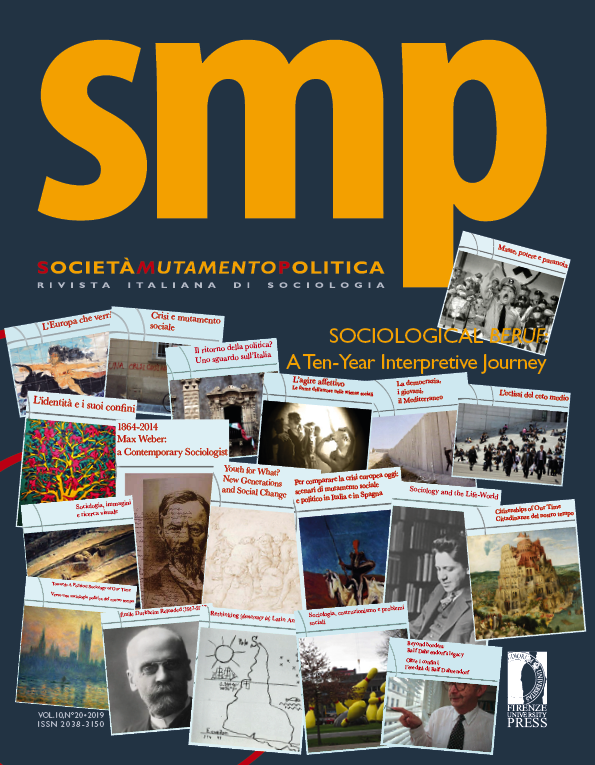Rivoluzione d’ottobre e Stato sovietico nelle scienze sociali in Occidente. Le interpretazioni sociologiche e politologiche nel corso del Novecento
Published 2020-01-16
Keywords
- Revolutions,
- October Revolution,
- Soviet State,
- Élites,
- Totalitarianism
- Bureaucracies,
- Mass society ...More
How to Cite
Abstract
The essay proposes to carry out an overview of the main contributions that sociology, political sociology and political science have made to the study of the October Revolution of 1917, and its consequences on what the Soviet state will then be until its collapse in 1991. The panorama of social and political studies in this field is in fact quite varied. In addition to well-known works, such as the works of Milovan Djilas or James Burnham, research deserves to be known and appreciated which, despite having had less “fame”, does not for this constitute works of lesser scientific value, such as, for give just two examples, the work of Waldemar Gurian or, in Italy, of Bruno Rizzi. As part of this review, we proceed to a discussion of the works dividing them according to the main perspectives with which they have faced the study of the Soviet Revolution and State. These perspectives can be divided as follows: a) the debate between juridical sciences and political sciences on the classification and definition of the Soviet regime; b) the role of bureaucracy in building the socialist state; c) the debate on totalitarianism and the Soviet case; d) the role of the elites in the October Revolution and in maintaining the regime achieved by it; e) mass society in twentieth-century Russia and the use of its characteristics by the revolutionary elite. The essay concludes by noting that a considerable part of the studies in question are still not translated from Russian or other Eastern European languages, and tries to answer the question about why totalitarianism, at least in the West, has found most of the scholars who have dealt with it, intent on analyzing mainly the Nazi case in Germany, and not the communist one in Russia.


